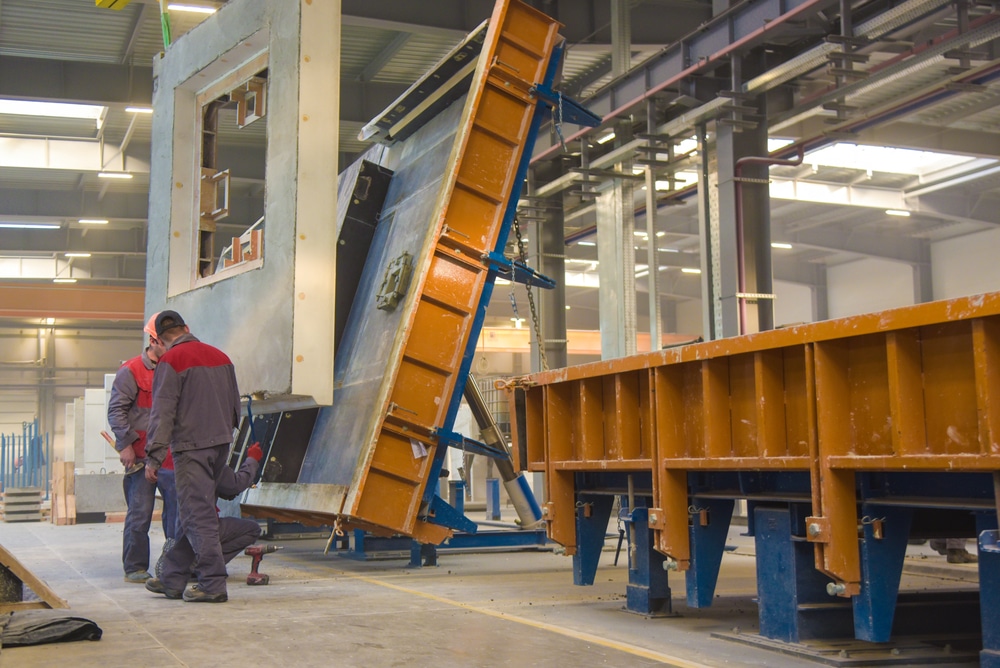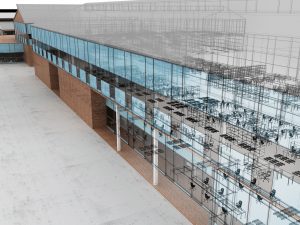Modular construction techniques, where parts of a building are prefabricated offsite before being transported and assembled on location, have proven to be popular with building companies and renovation experts over the years.
Modular construction: A greener and efficient alternative to traditional building methods
This construction method often promises faster project completion times, greater quality control, fewer risk factors, and potential cost savings compared to traditional construction. Modular construction methods make effective and efficient use of components that are manufactured or produced in factory conditions, thus alleviating many of the delays and problems caused by inclement and turbulent weather.
It’s estimated that in most modular building projects, 60-90% of the construction work is completed offsite before being transported to the site, where the remaining 10-40% is completed to provide the vital aesthetic finishes and structural markup. Once a project is completed, distinguishing between a structure built using modular methods and one built traditionally can be notably challenging.
Modular construction is known to reduce the overall carbon footprint and environmental impact of the project. The modular sections are delivered prefabricated resulting in fewer ad-hoc deliveries and tradespeople on-site at any one time. However, with sustainability and climate change discussions growing in volume and veracity, we have to ask whether this type of construction is truly environmentally beneficial in the long run. Let’s analyse the sustainability benefits and tradeoffs.
The benefits of modular construction for sustainability
There are several ways that modular building techniques can enable more sustainable construction practices.
Energy efficiency
- Modular units are constructed in a controlled factory setting optimised for efficiency. This results in greater preservation and usage of materials, fewer wasted emissions, and overall better energy performance.
- Materials can be installed more precisely offsite, such as interlocking concrete blocks, for example, that enable airtight, insulated wall systems. In turn, this is a more energy-efficient use of resources.
- Modular buildings allow for an effective insulation installation that wraps the entire unit or section. More seamless insulation will enable more optimum heat retention during colder months.
Waste reduction
- As reported by the construction industry’s most recent waste report, construction waste makes up over two thirds of the UK’s waste, with 23% going to landfill annually. Modular techniques allow for more efficient material usage and less waste since units are constructed offsite.
- Any waste or defects can be addressed in the factory, rather than onsite where fixes and adjustments create further waste like unusable offcuts and excessive materials that can’t be repurposed, reused or recycled.
Material sourcing
- Ordering uniform modular units allows builders to source “green” materials like sustainable wood, structural steel, bricks, or concrete in bulk. A modular process allows for precise orders, which can reduce costs and environmental impact from emissions.
- Components are designed for standardisation and repetition, optimising material quantities needed. In turn, less excess material gets wasted and fewer deliveries are required.
Adaptability
- Buildings are designed to allow rearrangement or reconfiguration over time. Units can be removed, replaced, or relocated as the requirements of the project change.
- This flexibility and ability to adapt makes modular construction sustainable for changing demands. Buildings can be expanded, repurposed, or relocated rather than demolished, thus prompting the onsite process to begin from scratch.
The tradeoffs to consider
While modular techniques offer plenty of sustainability benefits, there are also some important considerations to bear in mind:
Transportation logistics
- Transporting large prefabricated units like precast brick panels or veneer systems over long distances can consume large amounts of fuel and energy. Vehicle fleets need to be able to accommodate product order size and travel distance, all of which does have some environmental impact, which should be considered.
- The size of modules may be restricted due to vehicular or transportation limitations such as bridge heights and road widths. So very large projects may not reap as many inherent benefits if vehicles cannot easily access sites with restricted, narrow or otherwise precarious roads.
Shorter lifespans
- It’s unlikely but some precast or prefabricated materials and units may be subject to shorter lifespans than products that are ordered directly when onsite. Some traditional construction methods require onsite adjustments and strengthening due to miscalculations in the initial assessments. For instance, supporting walls may need additional layers of brickwork to accommodate the weight inflicted by additional extension flooring and walls. As such, it’s imperative that construction managers account for these as much as possible, if using the modular method.
- Repairs and replacements may be needed sooner, consuming more resources over the full life cycle.
Limitations on design
- The modular make up of certain materials and sections does impose some limitations on building design. For instance, in commercial or industrial buildings, modular units may only be able to be created up to a certain height, width and depth, and installing them in line with the structural drawings may prove more challenging.
- Some design limitations in modular construction may restrict architectural creativity and customisation for some unique building projects. However, mixing modular components with traditional onsite construction methods and ingenuity can help alleviate many of these design constraints.
Key takeaways – modular construction can be sustainable if used strategically
Modular building techniques do offer sustainability benefits thanks to the collective preservation of materials, reduced overall transport costs, energy efficiency, and adaptability.
However, it’s clear that concerns around logistics, lifespan, and design restrictions should be factored in. This is not to suggest that traditional onsite construction and modular components cannot be adopted simultaneously to overcome the common obstacles seen in building projects. It’s evident that a proactive and methodical approach can yield the best results in a project’s stability, safety and aesthetic appeal, along with the overall productivity of contractors.
Some best practices for sustainable modular construction include:
- Sourcing local manufacturers and materials whenever possible to reduce transportation emissions and environmental impact. Finding local or regional modular component fabrication helps to reduce the need for regular deliveries.
- Designing for durability and lifespan using robust fixtures and quality, reusable materials like concrete, brick, steel and timber, where applicable.
- Allowing flexibility for future adaptation through innovative modular techniques and connections.
- Combining modular components with traditional onsite construction for unique projects.
Overall, modular structures can be a more sustainable construction option if executed strategically. The method offers green benefits but also has caveats to consider. It’s unclear whether this practise is truly sustainable in the long run, however, it’s clear that construction companies have to take steps to maximise their efforts and energy preservation. Opting for an increased use of modular fixtures can be pivotal in helping them achieve their sustainability goals and minimise their impact on the environment.





















